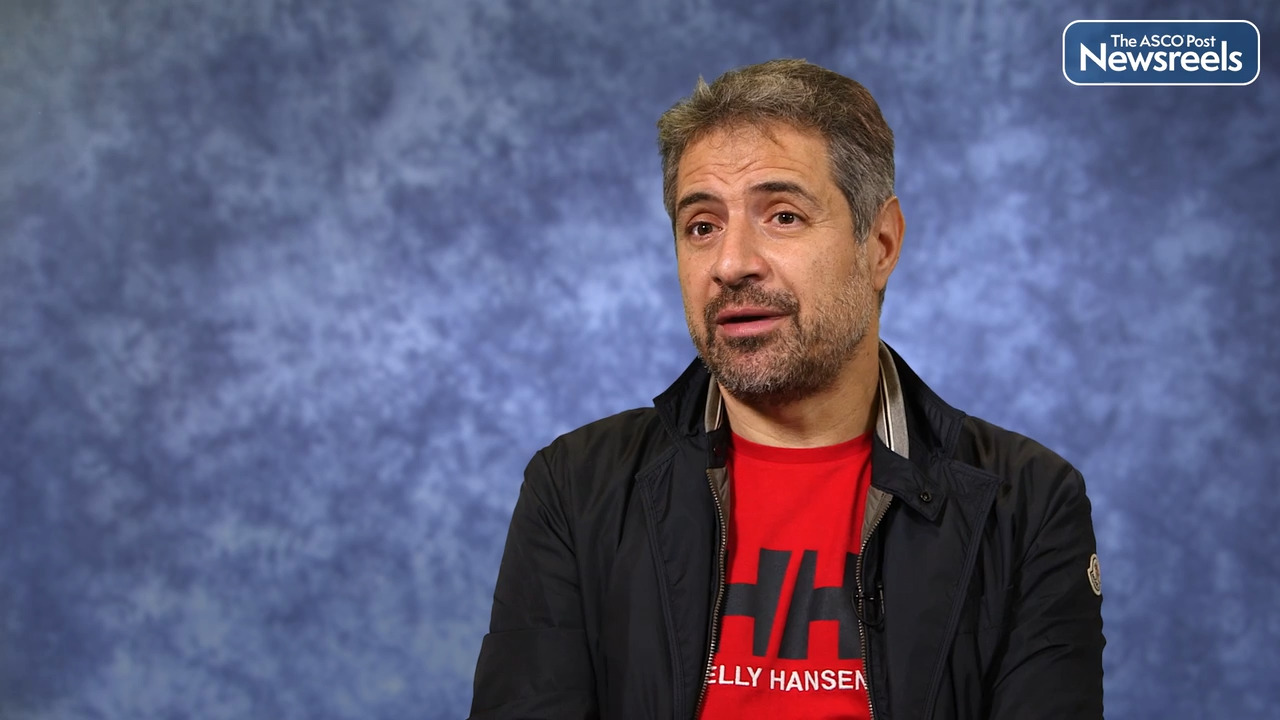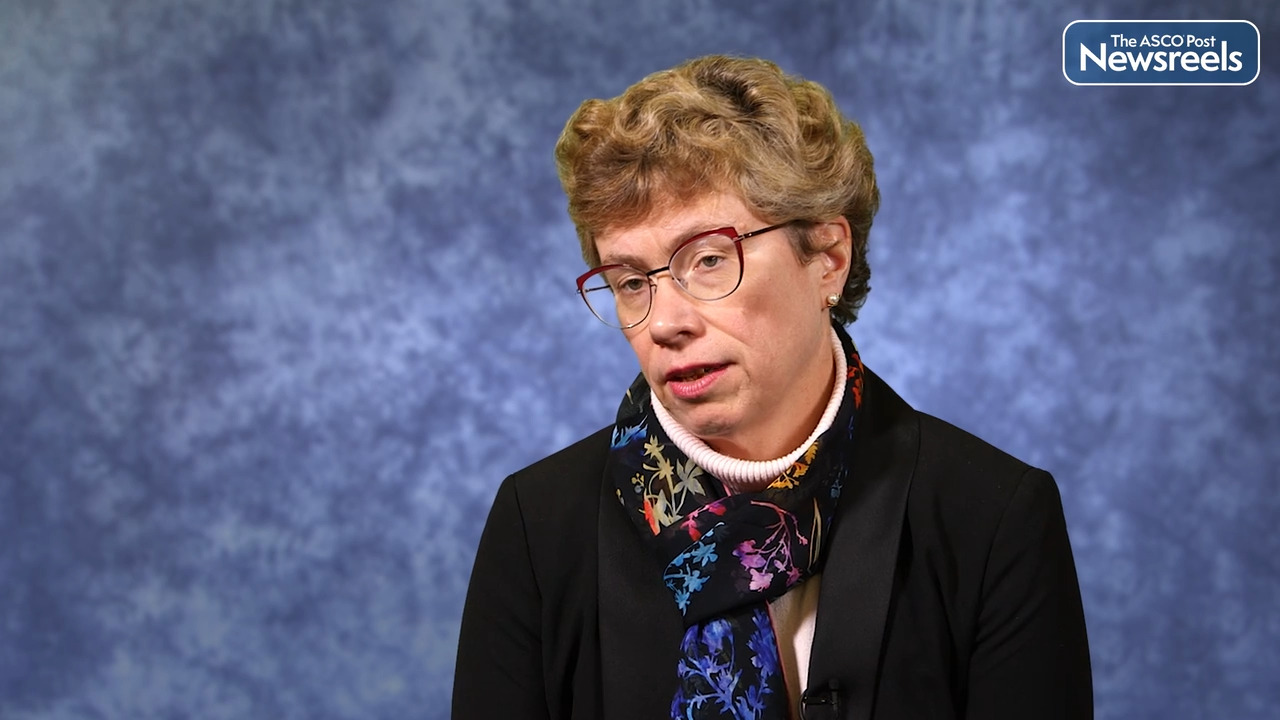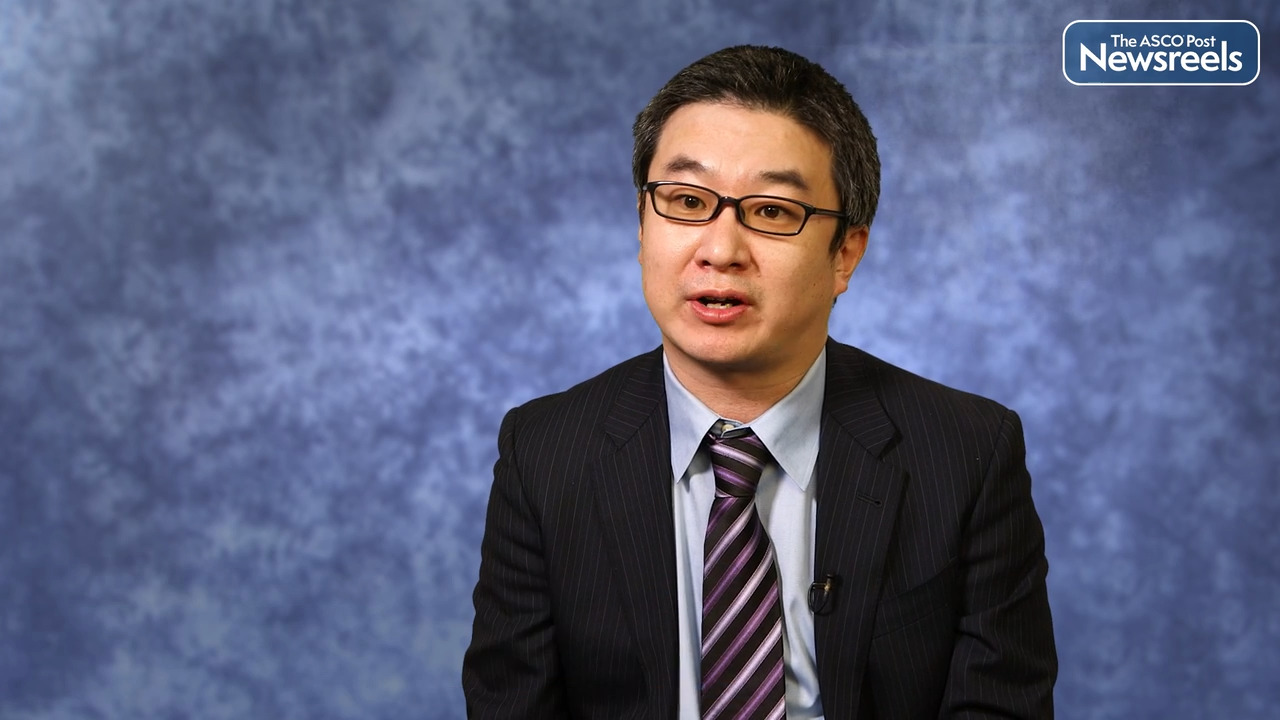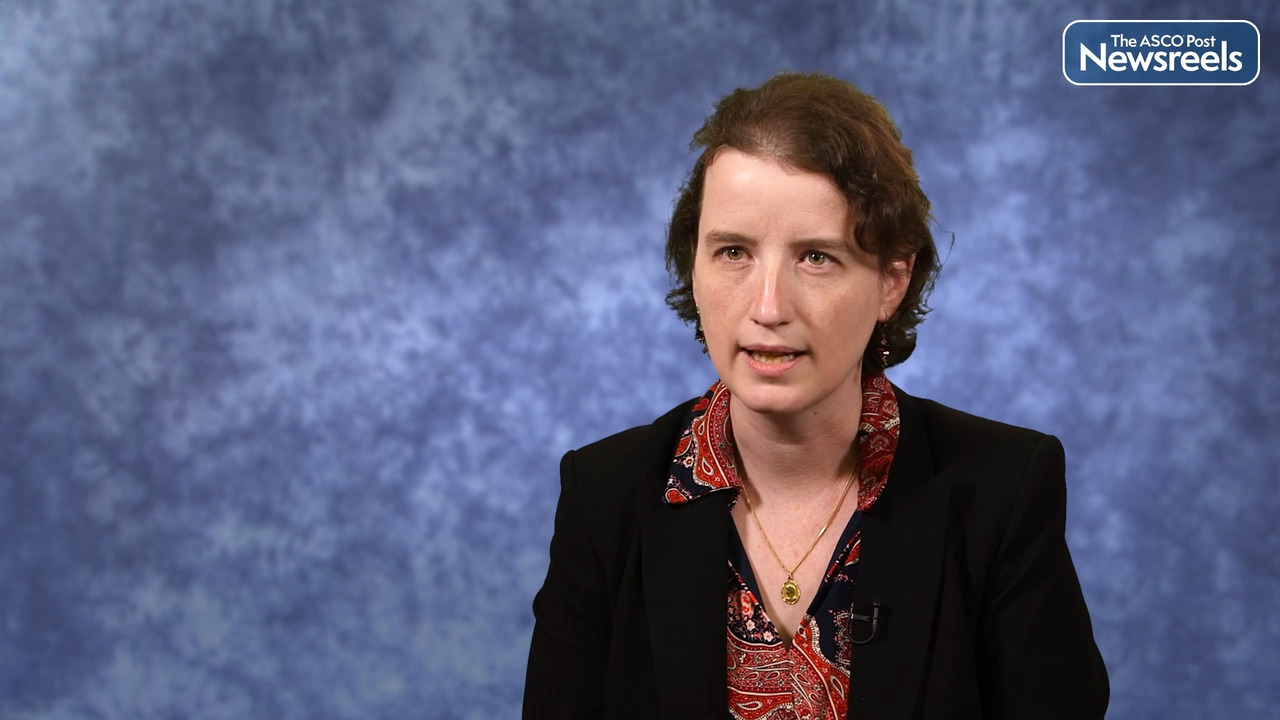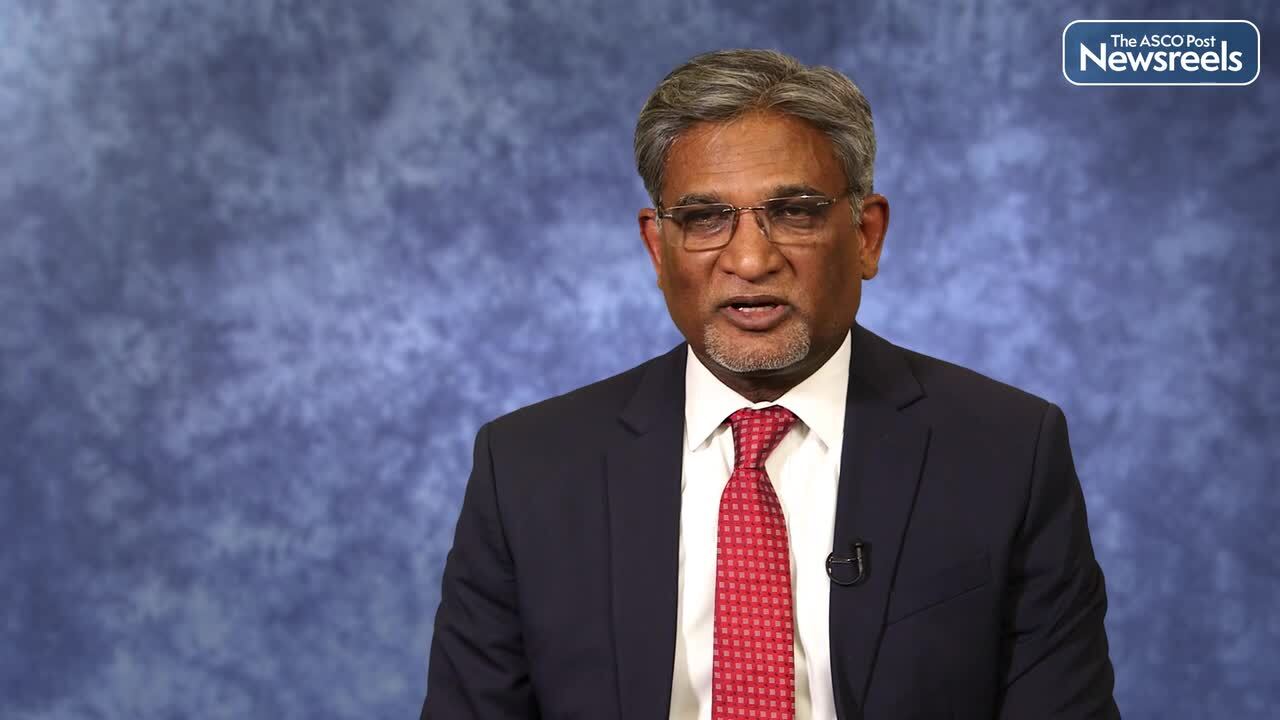Related Videos
Elias Jabbour, MD, on CML and ALL: Olverembatinib Overcomes Ponatinib Resistance
Elias Jabbour, MD, of The University of Texas MD Anderson Cancer Center, discusses an analysis confirming that olverembatinib is a potentially viable treatment option for patients with chronic myeloid leukemia (CML) and Philadelphia chromosome–positive acute lymphoblastic leukemia (ALL), including those with CML whose disease did not respond to ponatinib or asciminib, or who had a T315I mutation (Abstract 82).
Jennifer R. Brown, MD, PhD, on CLL/SLL: New Findings on Zanubrutinib vs Ibrutinib for Relapsed or Refractory Disease
Jennifer R. Brown, MD, PhD, of Dana-Farber Cancer Institute, discusses phase III findings of the ALPINE study, which showed that zanubrutinib is more efficacious and better tolerated than ibrutinib as a treatment for patients with relapsed or refractory chronic lymphocytic leukemia (CLL) and small lymphocytic lymphoma (SLL). In this first head-to-head comparison of the two BTK inhibitors, the superior progression-free survival of zanubrutinib was observed across all major subgroups, including high-risk patients (Abstract LBA-6).
Tomohiro Aoki, MD, PhD, on the Spatial Tumor Microenvironment and Outcome of Relapsed/Refractory Classical Hodgkin Lymphoma
Tomohiro Aoki, MD, PhD, of the University of British Columbia and the Centre for Lymphoid Cancer at BC Cancer, discusses a novel prognostic model applicable to patients with relapsed or refractory classical Hodgkin lymphoma who were treated with autologous stem cell transplantation. The model has shown the interaction between the biomarker CXCR5 on HRS cells (Hodgkin and Reed/Sternberg cells, hallmarks of Hodgkin lymphoma) with specific follicular T helper cells and macrophages, a prominent crosstalk axis in relapsed disease. This insight opens new avenues to developing predictive biomarkers (Abstract 71).
Eileen M. Boyle, MD, PhD, on Multiple Myeloma: Sustained MRD Negativity in Newly Diagnosed Disease Treated with Immunotherapy Regimens
Eileen M. Boyle, MD, PhD, of the Perlmutter Cancer Center, NYU Langone Health, discusses Fc-mediated antibody effector function, inflammation resolution, and oligoclonality and their role in predicting sustained measurable residual disease negativity in patients with newly diagnosed multiple myeloma who were treated with immunotherapy regimens. For the first time, an analysis of T-cell receptors shows that oligoclonal profiles seen on treatment may influence the fitness of the immune response (Abstract 100).
Anand P. Jillella, MD, on Acute Promyelocytic Leukemia: A Simplified Patient Care Strategy to Decrease Early Deaths
Anand P. Jillella, MD, of Georgia Cancer Center at Augusta University, discusses results from the ECOG-ACRIN EA9131 Trial, which showed that using a simplified treatment algorithm and management recommendations made by a group of specialists, resulted in a dramatic improvement in 1-year survival of patients with acute promyelocytic leukemia (Abstract 421).
